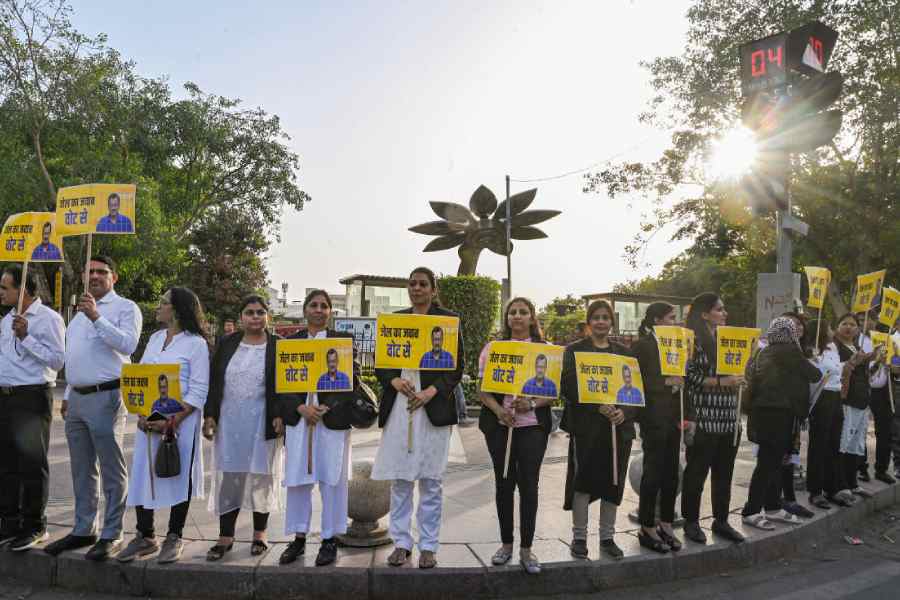The Supreme Court on Tuesday questioned the timing of Delhi chief minister Arvind Kejriwal’s arrest by the Enforcement Directorate in the alleged ₹100-crore excise policy case, saying “personal liberty is exceedingly important”.
The apex court also asked the agency to address various questions posed by it.
“Life and personal liberty are exceedingly important. You can’t be denying this. The last question we are asking you is with regard to the timing of the arrest, which they (Kejriwal’s legal team) say was soon before the general election,” a bench of Justices Sanjiv Khanna and Dipankar Datta told additional solicitor-general S.V. Raju representing the ED.
The bench pointed to the alleged illegalities committed by the ED, which arrested Kejriwal on March 21 after the model code of conduct (MCC) came into effect on March 16 when the Election Commission announced the poll dates.
Heading the bench, Justice Khanna noted that under Section 8 of the PMLA (Prevention of Money Laundering Act) 2002, a maximum of 365 days is prescribed for the ED to complete the adjudicatory process. In the present case the ED, however, had completed the adjudicatory process in 2022 but continues to file complaints and initiate proceedings against various other accused.
The court also said that at the next date of hearing, Raju should explain to the bench whether the same “threshold” should be fixed by the bench for any arrest made by the agency in terms of sections 19 and 45 of the PMLA.
Kejriwal had consciously avoided filing till date any bail application under Section 45 of the PMLA since it casts a reverse burden on the accused to prove his innocence, rather than on the prosecution to establish the guilt of a person, which is fundamental to criminal law jurisprudence under the Code of Criminal Procedure.
Given the rigorous conditions under Section 45 of the PMLA, Kejriwal chose to challenge his arrest on the ground that Section 19 of the Act was wrongly invoked. The section empowers a designated officer of the ED to arrest an accused “on the basis of material in his possession and also if he has “reason to believe” that a person is guilty of an offence.
Appearing for the chief minister, senior counsel Abhishek Manu Singhvi submitted that there was no material to link Kejriwal to the alleged scandal, and he was arrested deliberately after the MCC came into force and 18 months after the ED initiated an inquiry.
The bench on Tuesday also questioned the ED for not attaching any property related to the alleged crime, which is mandatory before initiating criminal proceedings against an accused. “You have to address us on these issues,” Justice Khanna told Raju and adjourned the matter to Friday.











